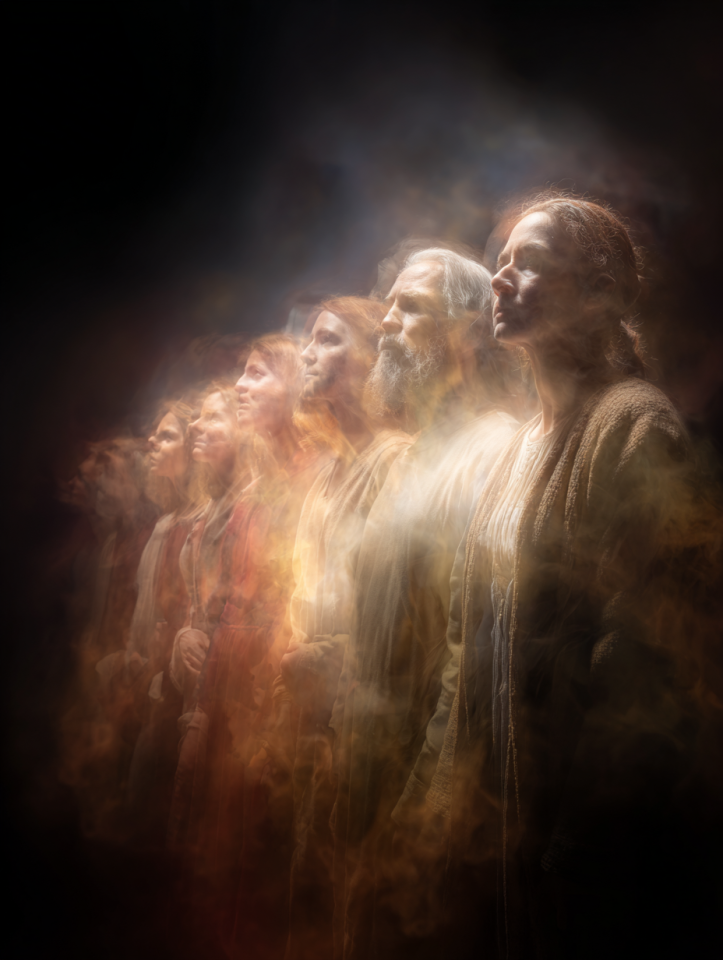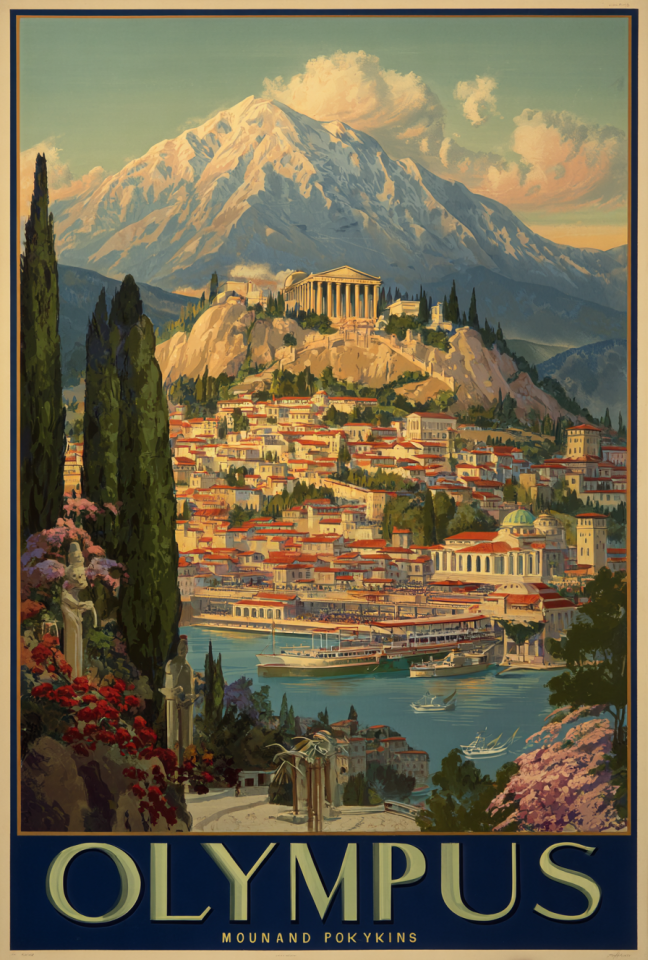Mount Olympus is the seat of divine governance and immortal interplay — a realm of eternal presence carved from light, cloud, and stone, where the Greek gods held court over the Mortal Realm. It is a Divine Realm of sovereignty, splendor, and volatile perfection. Though once linked by sacred peak and story, Olympus exists far beyond the earthly mountain that borrowed its name. Its true form lies suspended in its own stratum of reality, a luminous world of radiant citadels, shifting skies, and divine bureaucracy. For a time, the gods made themselves known — in prophecy, in storm, in desire — but as mortal reverence fractured, the Veil thickened. Now, Olympus endures unseen, its halls echoing with memory and immortal will.
Landscape and Essence
Olympus is a gleaming acropolis adrift in layered sky. Its peaks are not singular, but manifold — spiraling ridges of marble and cloud that rise above an ocean of mist. The air is crisp with clarity and warm with golden illumination. Palaces of bronze and lapis nest among hanging gardens and flowing aqueducts of nectar and ichor. Each domain reflects the temperament of its deity — Artemis' wild groves, Athena’s silent libraries, Dionysus’ ever-blooming vineyards. Thunder rolls softly across the expanse, not as storm but as dialogue. Time in Olympus stretches like poetry: cyclical, narrative, and always poised for turning.
Inhabitants
Olympus is ruled by the Twelve Olympians — deities of mind, body, love, war, and fate — each embodying an aspect of the mortal experience elevated to divine permanence. Zeus commands its center, but no throne is unchallenged. Hera, Poseidon, Demeter, and the rest maintain their own spheres, weaving conflict and accord into the realm’s immortal rhythm. Around them dwell minor gods, muses, and elevated mortals granted divinity through favor or cunning. No one sleeps here; rest is not required. Instead, there is discourse, music, passion, and prophecy — an eternal performance in which every player knows both their line and the weight behind it.
Cultural Significance
For the Greeks, Olympus was the ultimate center — of justice, inspiration, punishment, and elevation. Though imagined as a mountaintop in the Mortal Realm, it was understood that its *true* form lay beyond the visible world. Temples and festivals mirrored its structure; oracles received breath from its influence. The gods of Olympus were not distant — they interfered, instructed, and indulged — and their realm reflected the vibrancy and instability of mortal life, heightened to divine scale. Olympus endured in thought long after the rites faded, but with the rise of new gods and new orders, its portals dimmed. Still, its echoes remain in language, in ambition, and in the sky’s quiet pull toward drama.
Role in the Divine Realm
Olympus serves as the theater of divine consciousness — not the place of final judgment or creation, but of continual engagement. It is where decisions are made, fates are challenged, and balance is negotiated through power, persuasion, and spectacle. The realm does not aim for perfection — it embraces conflict as catalyst. Olympus is dynamic, mutable, and deeply invested in the unfolding narrative of the cosmos. It does not retreat from the world’s chaos; it reflects it, refines it, and sends it back transformed.
Interactions with Other Realms
For centuries, Olympus was thinly veiled — its presence felt in high places, through ecstatic rites and burning altars. Peaks such as Olympos in Thessaly and Lykaion in Arcadia were anchor points, though only the initiated could feel the pulse of the true realm. The Veil fell slowly, as belief fractured and the gods were softened into story. No catastrophe closed Olympus — only the gradual erosion of reverence. Now, only the gods themselves may travel its boundaries, though some say that echoes of Olympus still slip through in storms, poetry, and dreams that demand more than peace.
















